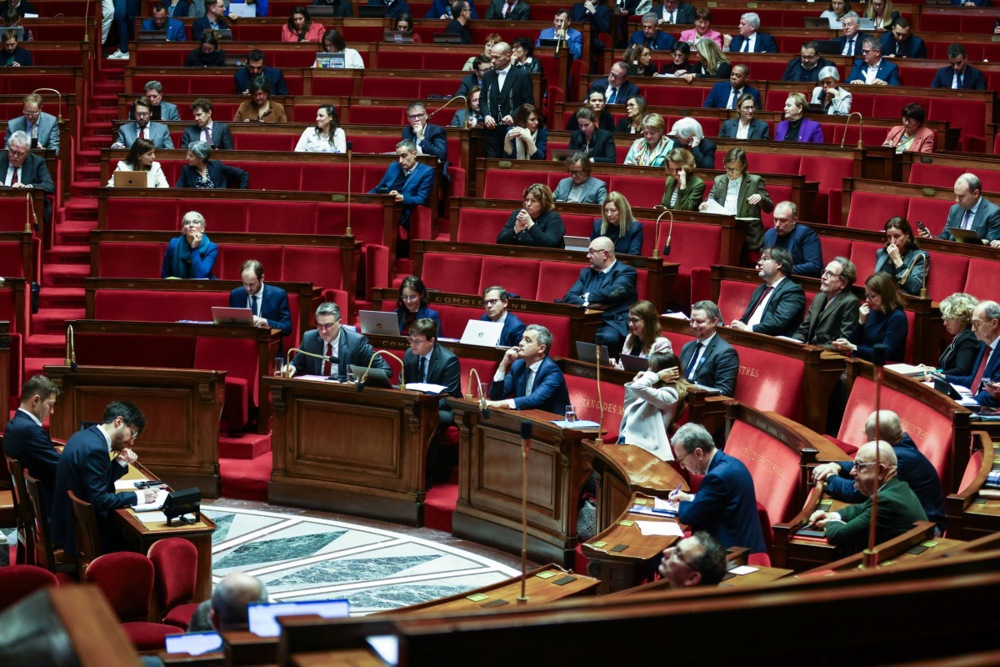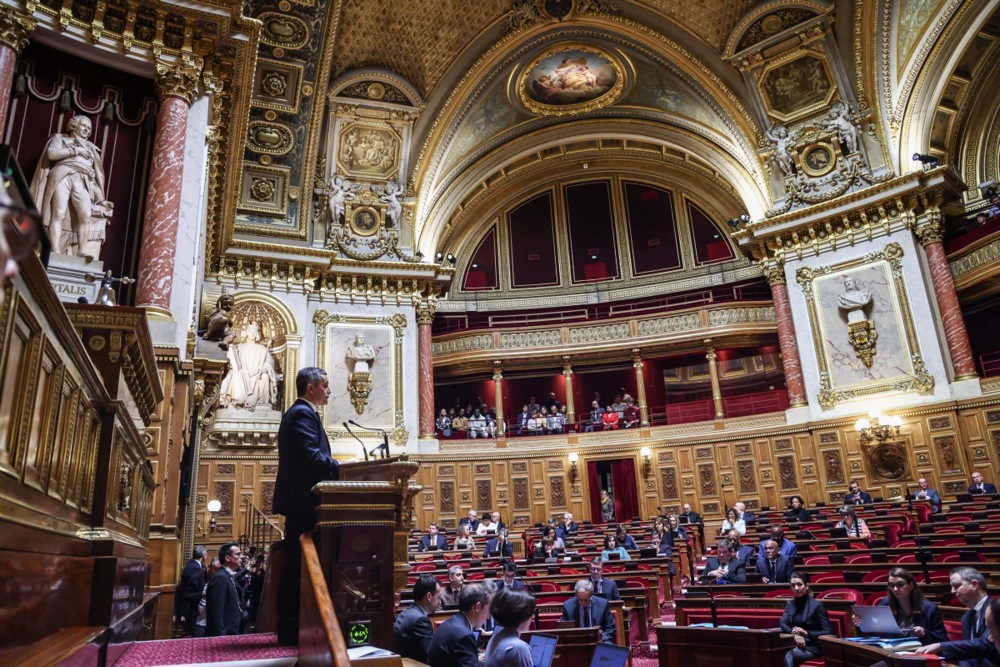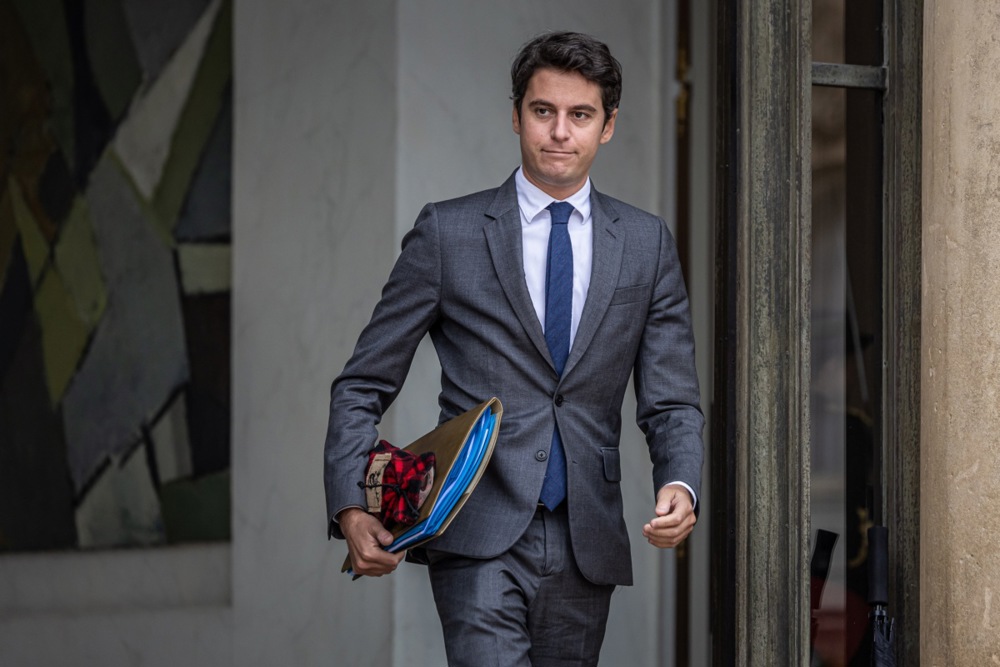The majority in the French Parliament voted in favour of a tougher migration law in what is being seen as a political win for the Right.
On December 19, the immigration bill, having been reworked by a joint committee, was largely adopted by the Senate and the National Assembly.
“For the first time in the history of the Republic, we are going to ban minors from administrative detention centres CRA],” said interior minister Gérald Darmanin after the vote.
“We are going to offer all foreigners free French lessons and oblige the employer to be able to take his classes during working hours, offer residence permits to people who denounce ‘slumlords’ and sanction them.
“Admittedly, an imperfect text, but a text that deserves to be voted on,” Darmanin concluded.
Both the centre-right Les Républicains (LR) and the nationalists of the Rassemblement National (RN) claimed victory. French President Emmanuel Macron, who only has a slim majority in Parliament, had to work with both to achieve his goals.
Thanks to an agreement brokered with right-wing MPs, the bill was eventually adopted, with 349 votes in favour and 186 against.
✅ Adoption du projet de loi pour contrôler l’immigration, améliorer l’intégration, compte tenu du texte de la commission mixte paritaire.
? En savoir plus : https://t.co/uiG3K11A3q#DirectAN #PJLImmigration pic.twitter.com/HqmlNdebG4— Assemblée nationale (@AssembleeNat) December 19, 2023
The political Left reacted with outrage and the Government was divided. Half a dozen ministers claimed they would consider resigning; health minister Aurélien Rousseau did. Prime Minister Élisabeth Borne said she believed some of the measures in the bill’s text are contrary to the Constitution.
Macron had campaigned on “blocking the far-right”, but now is seen as enacting their programmes.
The claim that RN’s votes were not necessary for the bill’s approval, as posted by Darmanin on X, was slapped with a “Community Note” or correction.
Le texte immigration est voté définitivement. Un long combat pour mieux intégrer les étrangers et expulser ceux qui commettent des actes de délinquance. Un texte fort et ferme. Sans les voix des députés RN.
— Gérald DARMANIN (@GDarmanin) December 19, 2023
Among notable changes to the bill are the introduction of a “migration quota”.
The principle of birthright citizenship has been abandoned. Instead, a person born in France to foreign, non-EU, parents will have to apply to obtain French nationality, which may be granted if they have never been convicted of a crime.
A person with dual nationality who has been found guilty of intentional homicide of police officers may have their French nationality revoked.
The offence of “illegal residence”, abolished by former president François Hollande in 2012, has been reinstated, although anyone found to be in France without official authorisation will now face fines rather than jail time as previously was the case.
Social benefits will no longer be available to anyone with a valid residence permit of less than 30 months.
Other allowances will require much longer residence in the country than before.
A residence permit for undocumented workers in occupations deemed in “short supply” of staff, a gesture towards the Left on Macron’s party, becomes possible under “exceptional” circumstances but at the discretion of municipal prefects.
As another concession to Macron’s leftist party members, minors will not be held in administrative detention centres.
The Right wanted an end to taxpayers footing the bill for illegal migrants, but the Government has only promised “a reform” in 2024.
Despite the attempt to pacify the Left, many seem to feel these concessions are not enough.
On the far Left of La France Insoumise, deputies said the bill was a “far-right text” and a “copy-paste of Jean-Marie Le Pen’s programme”.
A “text of shame”, according to the French Communist Party deputy Elsa Faucillon.
Remettre en question le droit du sol conduit à ce que dans une famille, certains sont Français et d'autres non.
C'est absurde.#LoiImmigration pic.twitter.com/M3ww0UqPOQ
— Jean-Luc Mélenchon (@JLMelenchon) December 19, 2023
The biggest winners are the Republicans, with many of the party’s proposals translated into law via the bill they championed.
“What we have proposed will put an end to the migratory pull that made our country the most generous social model in Europe,” said LR party leader Éric Ciotti.
Marine Le Pen said the bill was “a small step” that “falls far short of the constitutional revision needed to bring immigration under real control”, but insisted it was “an undeniable ideological victory” for her party.
She said that the fundamental shift in the law lay in the fact it gives the “advantage to the French over foreigners” present in the country, even if the conditions were “not severe enough”.
On the Right, political firebrand Éric Zemmour was more critical: “We would like to understand how a law which will change almost nothing is considered by the RN and by LR as an overwhelming victory,” he posted on X.
“They are jumping around because they tinkered with Macron on a law that in no way corresponds to the expectations of the people. Politics becomes the space between politicians who make fun of the French and the French who make fun of politicians.”





